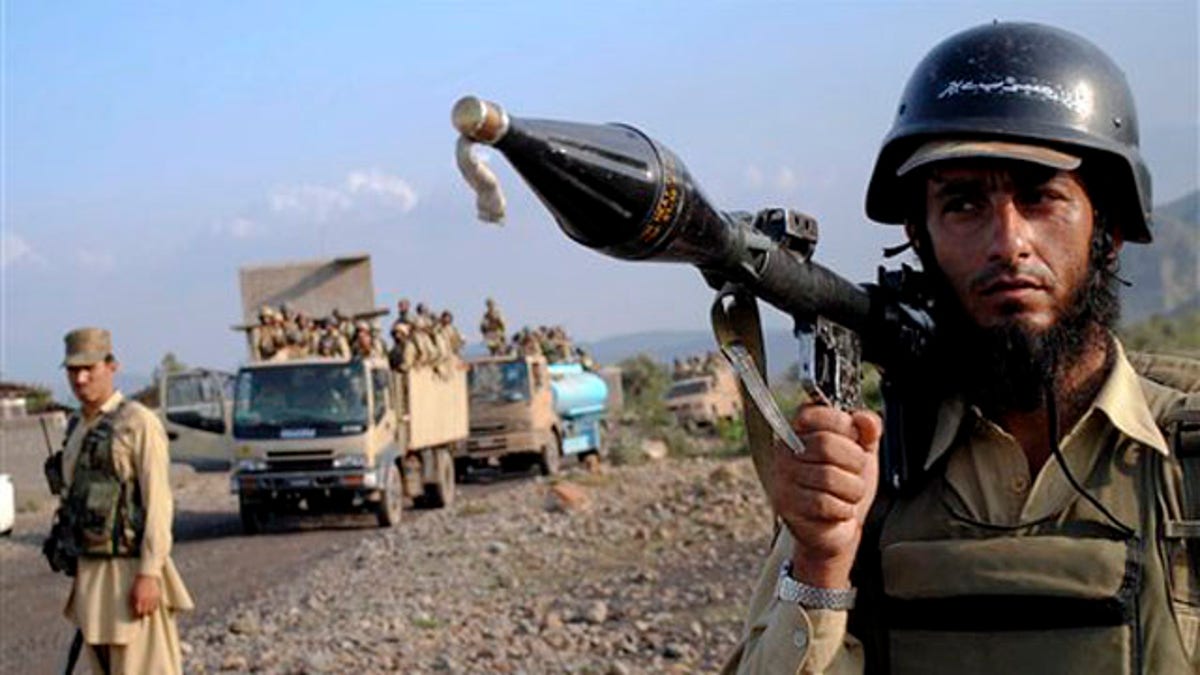
A Pakistani paramilitary soldier secures an area as other troops move toward a forward base during a military operation against militants in the Khurram tribal region July 9. (AP)
The Obama administration plans to suspend or cancel hundreds of millions of dollars in aid to Pakistan, amid concerns over whether that money is being well spent in the fight against militant groups inside the country's borders.
White House Chief of Staff Bill Daley confirmed Sunday that about $800 million in U.S. military aid to Pakistan could now be in jeopardy, saying that while the U.S.-Pakistan relationship has not "failed" the two countries have a lot to work out.
"The truth of the matter is our relationship with Pakistan is very complicated. Obviously, they have been an important ally in the fight on terrorism, they have been the victim of enormous amounts of terrorism. But right now they have taken some steps that have given us reason to pause on some of the aid which we were giving to their military," Daley said. "And we're trying to work through that. And it's a complicated relationship in a very difficult, complicated part of the world."
The already-tenuous relationship between the U.S. and Pakistan has taken a dive since a U.S. team raided Usama bin Laden's compound and killed the Al Qaeda leader. His location on the outskirts of a Pakistan military city raised questions about Pakistani complicity -- following a string of subsequent diplomatic skirmishes, The New York Times first reported that the U.S. aid would be withheld.
"The Pakistani relationship is difficult, but it must be made to work over time," Daley said, confirming the report. "But until we get through these difficulties, we will hold back some of the money that the American taxpayers have committed to give."
The aid, nearly half of the $2 billion a year in security assistance provided to Pakistan, reportedly includes money that would have been used to reimburse Pakistan for the cost of sending soldiers to combat militants along the Afghan border. It also would have gone toward training assistance and military supplies -- though some of that equipment Pakistan has refused to accept anyway. Pakistan also recently kicked more than 100 Special Forces trainers out of the country.
Adding to the tension, Chairman of the Joint Chiefs of Staff Adm. Mike Mullen this past week said he thinks Pakistan was behind the death of one of its own journalists. At the same time, lawmakers and Pentagon officials are trying to find savings in the budget amid wide-ranging negotiations over the debt ceiling.
Defense Secretary Leon Panetta nevertheless urged the public not to jump to conclusions about Pakistan with regard to bin Laden.
"Everybody has suspicions about how much they knew, when they knew. The reality is there are investigations now being conducted to try to determine whether or not there were elements of Pakistani military that might have known," he said. "So we'll have to wait to see results."




